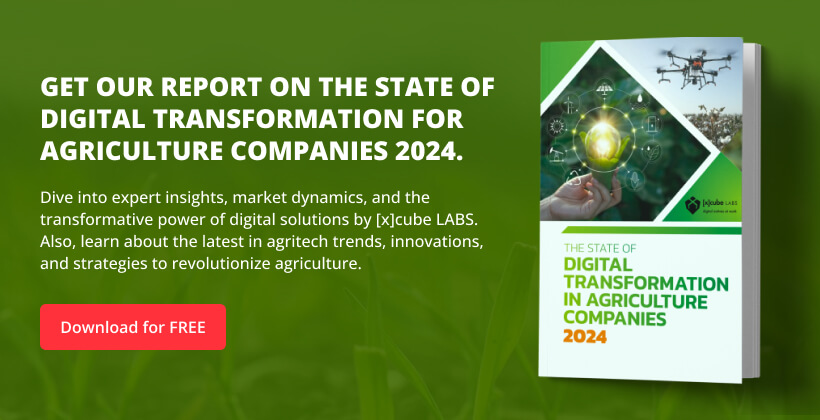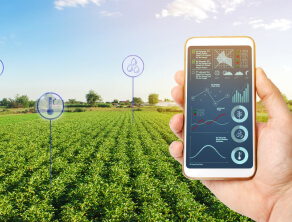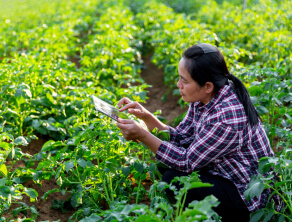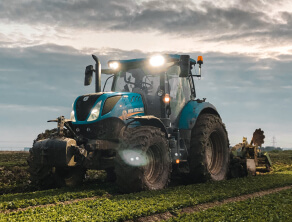Revolutionizing Agriculture: The Power of Farming Apps and Agriculture Apps.
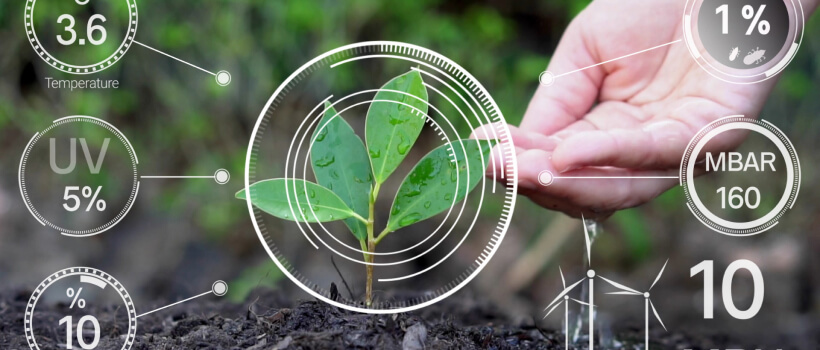
Introduction:
In the digital age, mobile applications have become an integral part of various industries, including agriculture. With the advancement of technology, farming apps, and agriculture apps have emerged as powerful tools, transforming the way farmers and agricultural professionals manage their operations. These innovative applications bring efficiency, productivity, and convenience to the farming community, enabling them to make informed decisions, optimize resources, and improve overall yield. In this article, we will explore the significant role of farming apps and agriculture apps in revolutionizing the agricultural landscape.
- Streamlining Farm Management with Farming Apps:
Farming apps have revolutionized the way farmers manage their day-to-day operations. These apps provide farmers with a range of features and functionalities that streamline farm management processes. From crop planning and monitoring to irrigation scheduling and livestock management, farming apps offer a comprehensive suite of tools that help farmers make informed decisions in real-time. They can access weather forecasts, track pest infestations, manage inventory, and even analyze financial data, all from the convenience of their mobile devices. These apps enhance operational efficiency, save time, and improve productivity on the farm.
- Empowering Precision Agriculture through Agriculture Apps:
Agriculture apps play a crucial role in the implementation of precision agriculture techniques. By leveraging advanced technologies such as GPS, remote sensing, and data analytics, these apps enable farmers to optimize their resource utilization and increase crop yields. With the help of agriculture apps, farmers can precisely map their fields, monitor soil conditions, and apply fertilizers and pesticides with precision. These apps also facilitate the integration of data from various sources, such as weather stations and IoT devices, providing farmers with valuable insights for decision-making. By adopting agriculture apps, farmers can reduce costs, minimize environmental impact, and achieve sustainable agricultural practices.
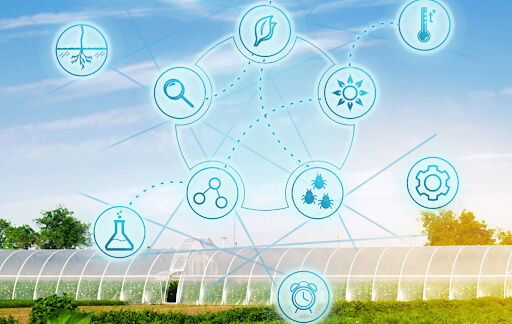
- Enhancing Knowledge and Information Sharing:
Mobile apps in agriculture have also become valuable platforms for knowledge sharing and information exchange among farmers, researchers, and agricultural experts. Many farming apps offer forums, chat features, and online communities where farmers can connect, share experiences, and seek advice. These apps allow farmers to discuss challenges, exchange best practices, and stay updated on the latest agricultural trends. Additionally, agriculture apps often deliver educational content, articles, and tutorials, empowering farmers with relevant knowledge to improve their farming techniques. This collaborative approach fosters a sense of community and facilitates continuous learning in the agricultural sector.
- Overcoming Challenges and Improving Sustainability:
The integration of mobile apps in agriculture helps address several challenges faced by farmers. By utilizing data-driven insights and real-time information, farmers can proactively tackle pest outbreaks, diseases, and adverse weather conditions. This proactive approach not only minimizes crop loss but also reduces the reliance on chemical inputs, promoting sustainable farming practices. Furthermore, agriculture apps contribute to better water management by optimizing irrigation schedules and preventing water wastage. By improving resource efficiency, these apps assist in the conservation of natural resources, making agriculture more environmentally friendly.
Conclusion:
The emergence of farming apps and agriculture apps has transformed the agricultural landscape by empowering farmers with valuable tools, insights, and knowledge. These mobile applications streamline farm management, enable precision agriculture, facilitate knowledge sharing, and address sustainability challenges. By harnessing the power of technology through mobile apps, farmers can enhance productivity, optimize resource utilization, and contribute to a more sustainable and prosperous agricultural sector. Embracing these innovative solutions is crucial for the modern farmer looking to stay ahead in an ever-evolving digital world.
![Blog-[x]cube LABS](https://d6fiz9tmzg8gn.cloudfront.net/wp-content/uploads/2016/06/blog_banner.jpg)
